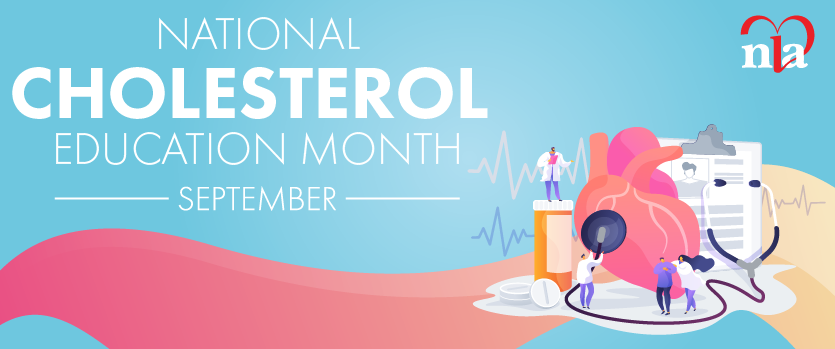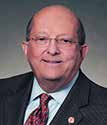In the strictest sense, “advocacy” is defined as the act or process of supporting a cause. With that as the basis of our discussion, why is advocacy important to a medical specialty organization such as the National Lipid Association (NLA)?
The NLA’s mission statement includes comments on professionalism and public service and this service relates to patient outcomes, with specific reference to reducing death and disability related to lipid disorders. Therefore, it is both reasonable and appropriate that the NLA develop strategies to work with state and federal legislators, governmental agencies and all systems that provide healthcare services with the goal of putting patients first.
I come from a decade of advocacy experience with the American College of Cardiology (ACC), serving in two unique but distinctly different roles. I am the chair of the Advocacy Steering Committee that works with the ACC’s advocacy staff to review all major advocacy issues for the ACC Board of Trustees and for the ACC president. We may review as few as two or more than 10 advocacy-related topics each month and render opinions or recommendations for communications on behalf of the ACC. In my role as chair of the ACC’s Political Action Committee (ACCPAC), I am a part of the leadership team of this voluntary, non-partisan political action committee formed to support the ACC’s mission to transform cardiovascular care and improve heart health. ACCPAC opens the doors for ACC members and staff to educate key members of Congress on cardiovascular issues. The funds that we raise amplify the voices of cardiovascular professionals to impact the political process and send a powerful message to Congress regarding the need to preserve and improve cardiovascular care.
When a medical specialty organization commits to an advocacy agenda, the first step is to define its message on behalf of the professionals it serves and the patients it represents. Such action is simple for organizations like the NLA simply based on its current mission statement. While there may be advantages if your organization develops a political action committee, it is neither a requirement nor a strict obligation of a medical specialty organization. The NLA can further pursue advocacy through engaging its members to participate in direct political action activities outside the organization.
Defining pathways for advocacy within the NLA will strengthen the organization’s ability to speak on behalf of patients with lipid disorders and their families. It also will enhance the NLA’s visibility on these particular issues.
Let me share with you some examples of messaging from the ACC. The theme for the 2014 ACC Legislative Conference was “Leading the Transformation in Healthcare.” Our message to Congress included developing a value-driven healthcare system, ensuring practice stability and securing the future of cardiovascular care. Our lobbying efforts in 2014 and early 2015 laid the foundation for the repeal of the flawed Medicare Sustainable Growth (SGR) formula.
The ACC believes that clinical data registries are the foundation for educating our cardiovascular care team on the real- world treatment of various cardiovascular disorders. The goal of these registries is to improve the appropriate use of resources, reduce hospitalizations and readmissions, and improve outcomes with a variety of treatment strategies and procedures.
The ACC’s National Cardiovascular Data Registry (NCDR) has expanded to cover a large number of cardiovascular conditions and procedures. We now include the vast majority of cardiac catheterizations/percutaneous coronary interventions (caths/PCIs), transcatheter aortic valve replacements (TAVRs), implantable cardioverter-defibrillators (ICDs), atrial fibrillation ablations and myocardial infarctions managed in the U.S. We have expanded to follow-up and management of adults with congenital heart disease. The companion outpatient Pinnacle Registry is a rapidly growing case depository in the U.S. and has educated researchers and our members on the daily care of cardiovascular patients. We have engaged the American College of Physicians to enrolled patients with diabetes to help us understand the relationship between diabetic care and cardiovascular disease. As part of our international strategy, we have partnered with practices in India and now have more than 100,000 patient records from India in a separate part of the Pinnacle Registry. These activities allow us to speak to Congress, federal agencies, and other partners in care delivery on what we have learned and how we project changes to allow us to be a leader in the improvement of cardiovascular care.
The theme of the 2015 Legislative Conference was “Member Engagement: ACC Members Making a Difference.” Our visits to Capitol Hill centered on thanking our members of Congress for the passage of the Medicare Reform Act and CHIP Reauthorization Act (MACRA) of 2015, while stressing that Congress should work with medical specialty societies and federal agencies to develop alternative payment models that allow clinicians to provide the most effective and efficient care to their patients. We urged Congress to utilize the expertise and experience of medical specialty societies to promote the usability of electronic health records. We made a strong case for Congress to support new funding for the National Institutes of Health (NIH) and the Food and Drug Administration (FDA) at the levels provided in the House-passed 21st Century Cures Act.
The practice models for our cardiovascular care teams vary across the country but are unified by the need to improve regulations as related to electronic health records and meaningful use. The ACC remains a strong voice on behalf of our members to streamline regulations and facilitate new programs centered on value-driven healthcare.
The ACC remains a beacon for sounding the message that the NIH needs increased funding for clinical research. We are committed to ensuring an appropriate pipeline of cardiovascular professionals through increased funding for graduate medical education.
The ACC’s new strategic plan has placed an emphasis on “population health.” As part of this, the ACC Population Health Policy and Health Promotion Committee recently convened a meeting of ACC members and a diverse array of experts from government agencies, universities, medical specialty societies, and private sector partners. During this meeting primary prevention, health equity, and social determinants of health, the changing healthcare landscape and the role of primary care professionals in advancing cardiovascular health were all discussed. As our ACC president, Dr. Kim A. Williams Sr., loves to say, “It is time to turn off the faucet rather than mop up the floor.”
NLA members can certainly join with the ACC and other sister cardiovascular organizations in advocacy messaging. As experts on lipid disorders, NLA members may want to consider serving patients through focused messaging from your areas of expertise.
As a cardiologist whose patient population includes a large number of patients with lipid disorders, I see some unique opportunities for the NLA in the years ahead. All of us in cardiovascular care have been spoiled by statins — a major weapon in the prevention and management of atherosclerotic disease — going generic and the cost of care and access to the drugs becoming less of a problem. PCSK9 inhibitors, on the other hand, highlight issues regarding the cost of care, access to care, and appropriate use of resources. Other professional organizations, such as the ACC, look to the NLA to guide our thinking and approaches as we all deal with government agencies, state Medicaid programs, and health plans to ensure that patients receive the best care possible and have the best possible outcome from the management of their lipid disorder. The interpretation of outcome studies and the generation of guidelines should remain with care professionals rather than with governmental agencies. The ACC and the NLA should continue to work together on future advocacy efforts related to the prevention of cardiovascular disease.
It appears that we are in the infancy of personalized medicine, and the future will likely offer clinicians a variety of genetic tests to identify specific genetic disorders and to identify populations with genetic variations that place them at higher risk for atherosclerotic disease. Again, the interpretation and management of emerging research will depend on professionals in the field. It seems appropriate that the NLA be among the voices to ensure that outcomes and value, not just unit costs, are the drivers of healthcare.
Just as personalized medicine is an emerging paradigm, we know that the passage of MACRA accelerates the change in reimbursement for American physicians. Congress has mandated that the Centers for Medicare and Medicaid Services (CMS) rapidly move to a value-based payment system with a step-wise increase in payments through alternative payment models. Each of us can only speculate about whether such systems will enhance or diminish access to care for patients who may need expensive services. Only through advocacy, careful vigilance, and continued outcomes research will we be able to serve our patients best.
Disclosure statement: Dr. Sherman has no disclosures to report.






.jpg)
.png)











